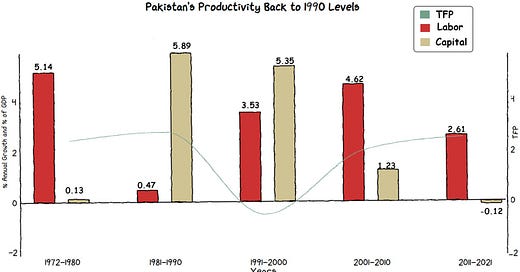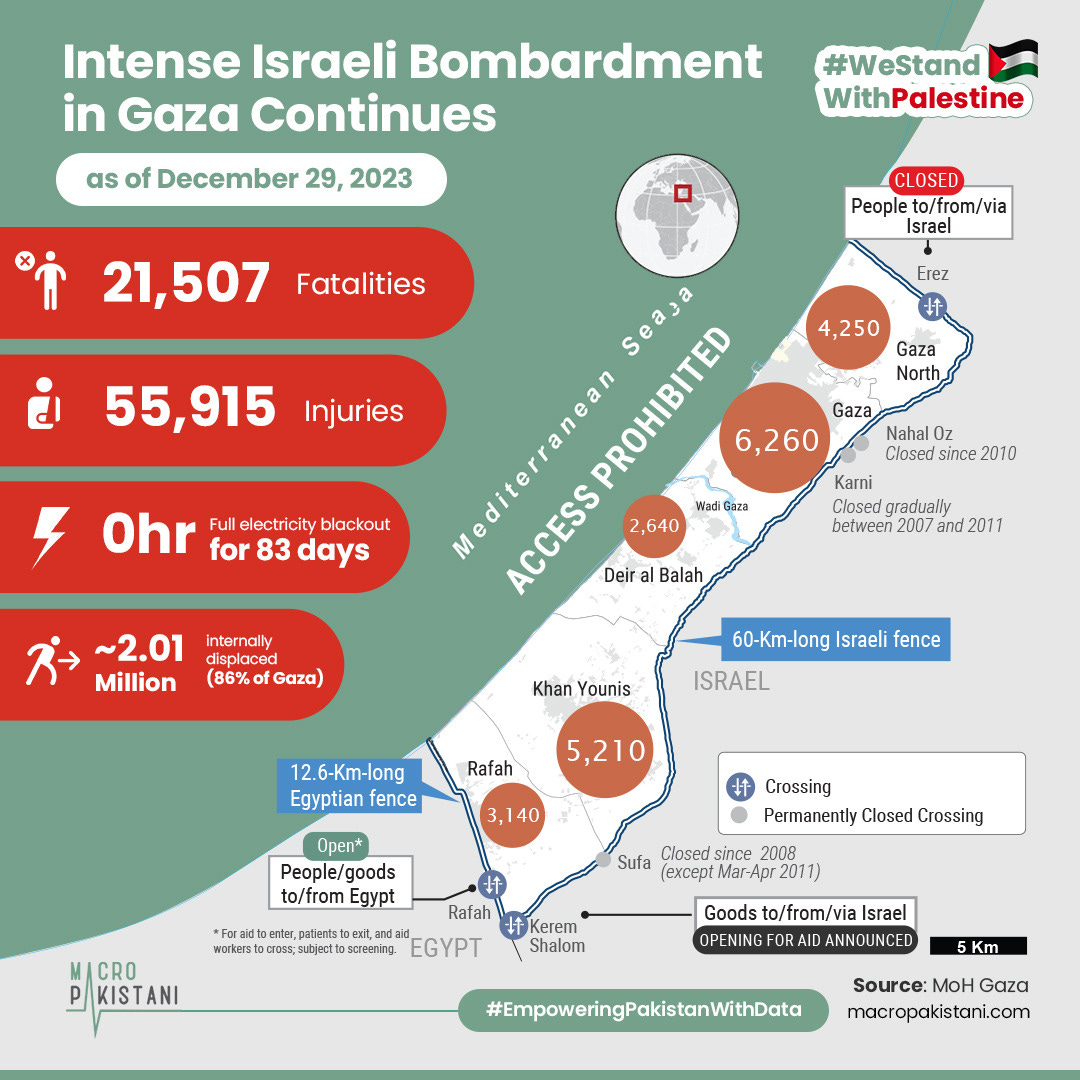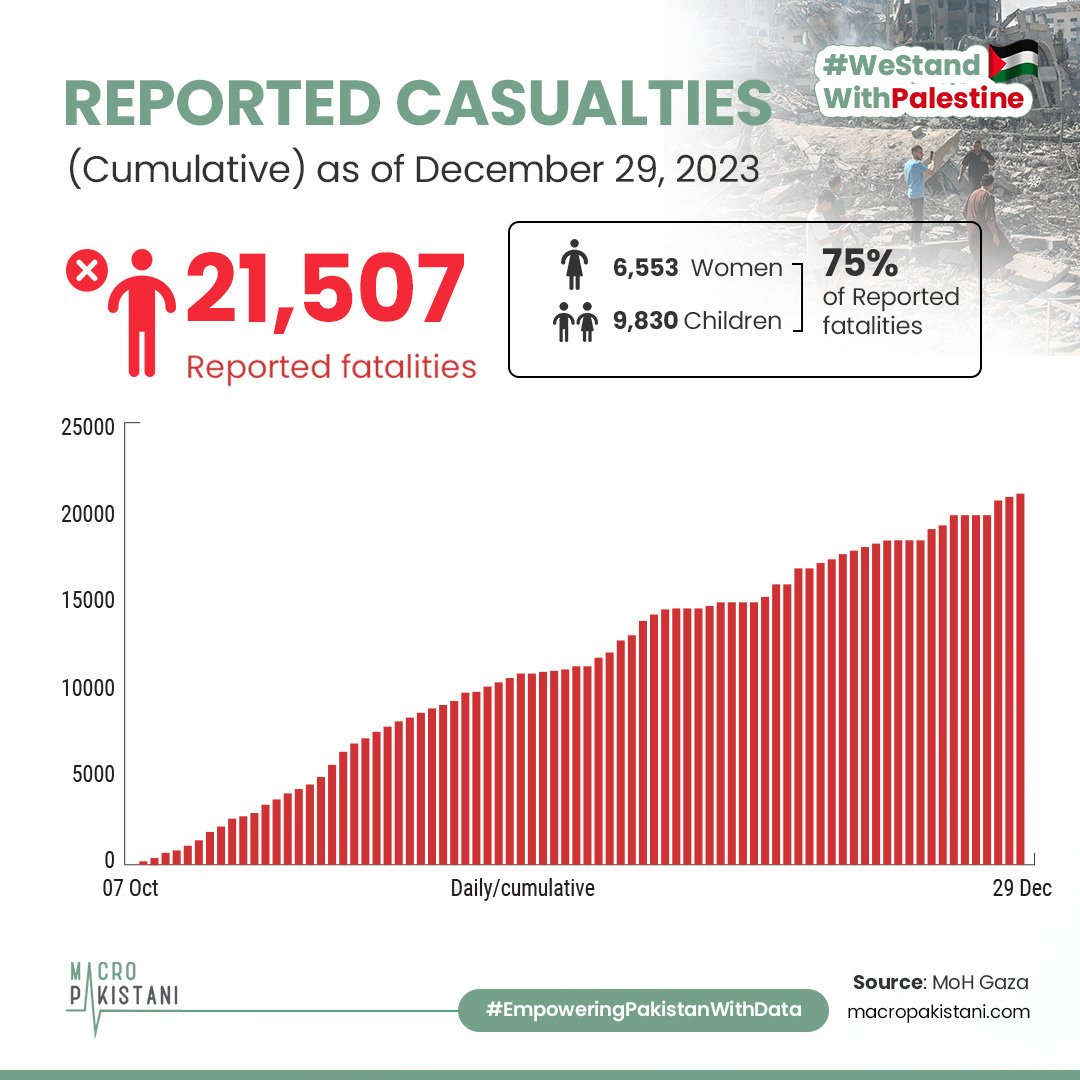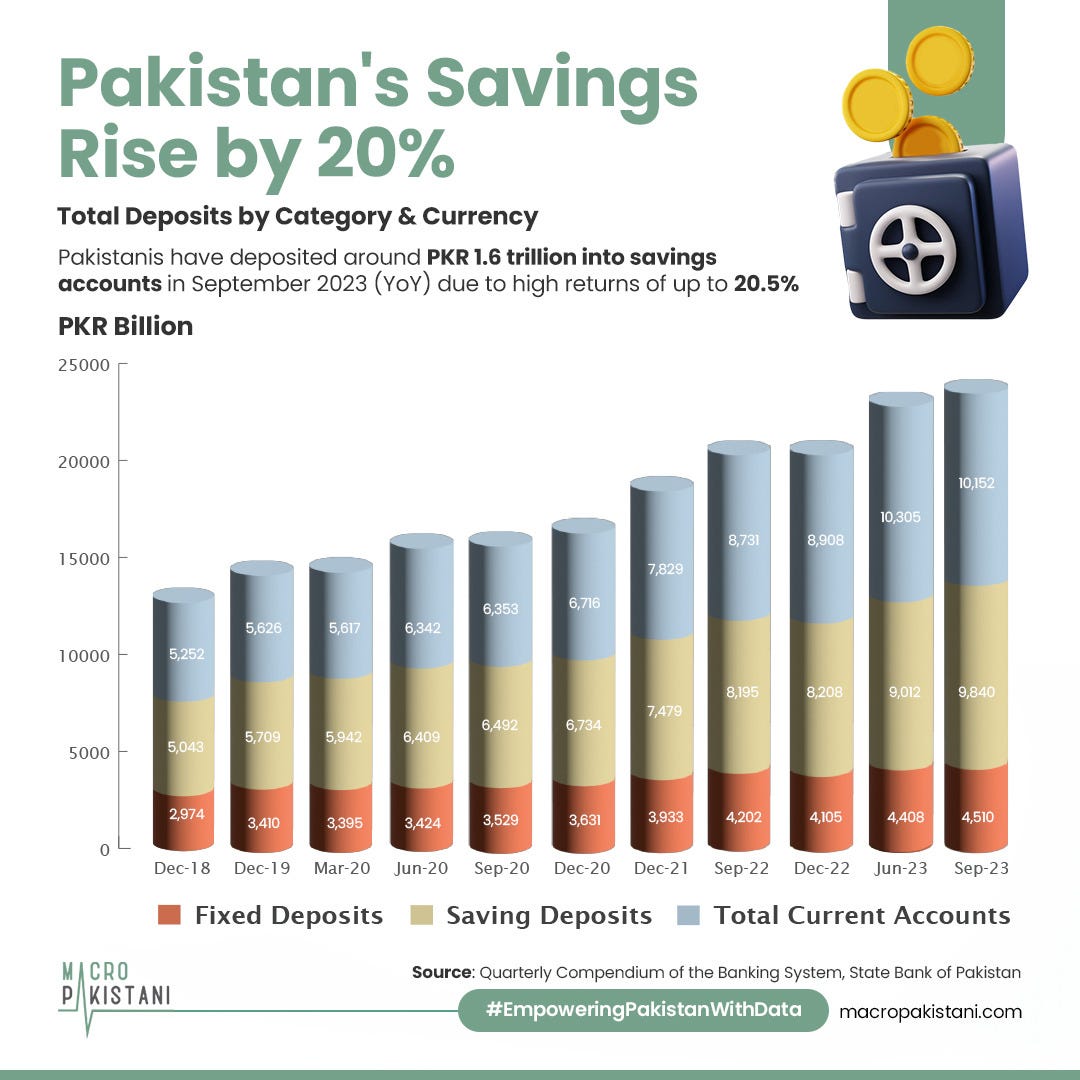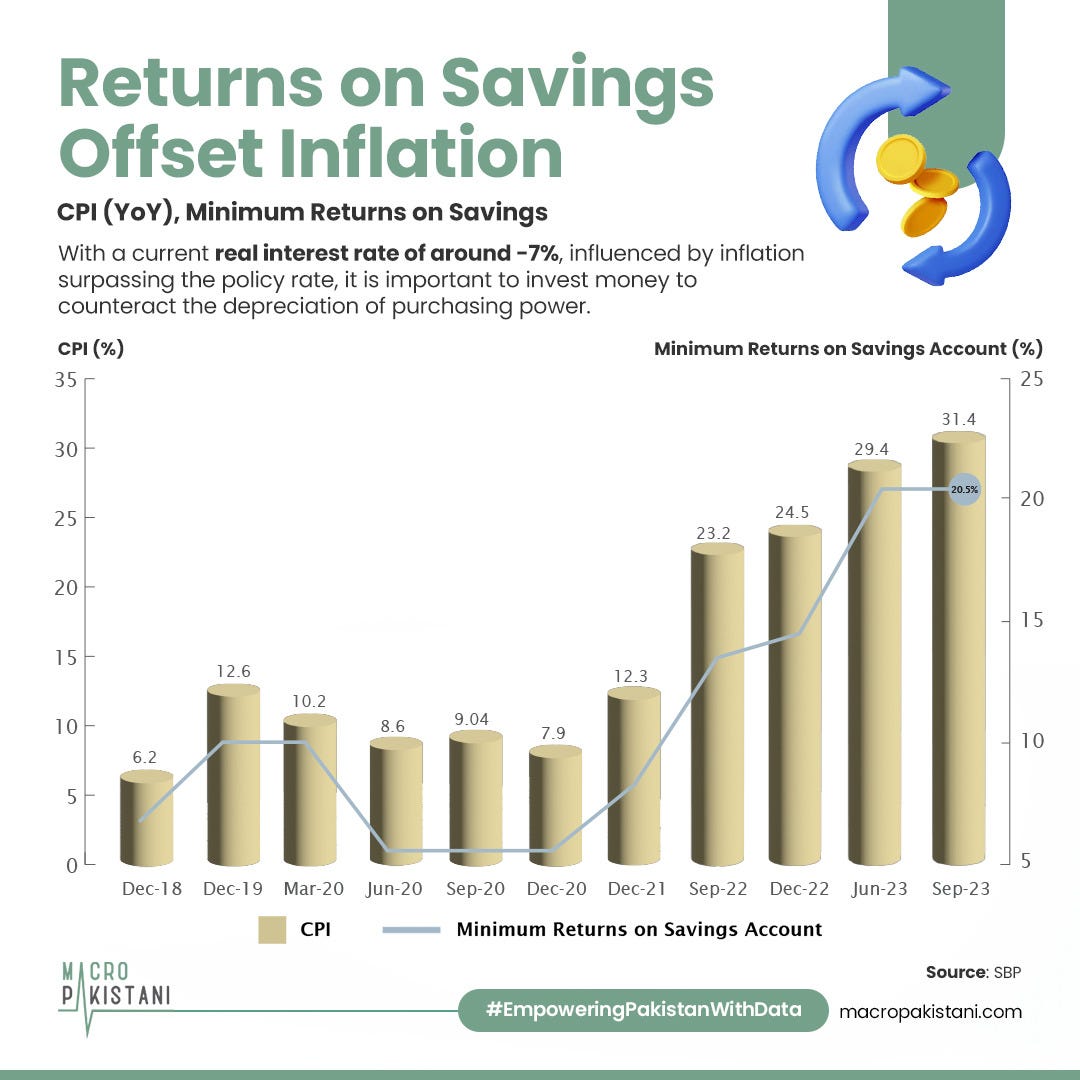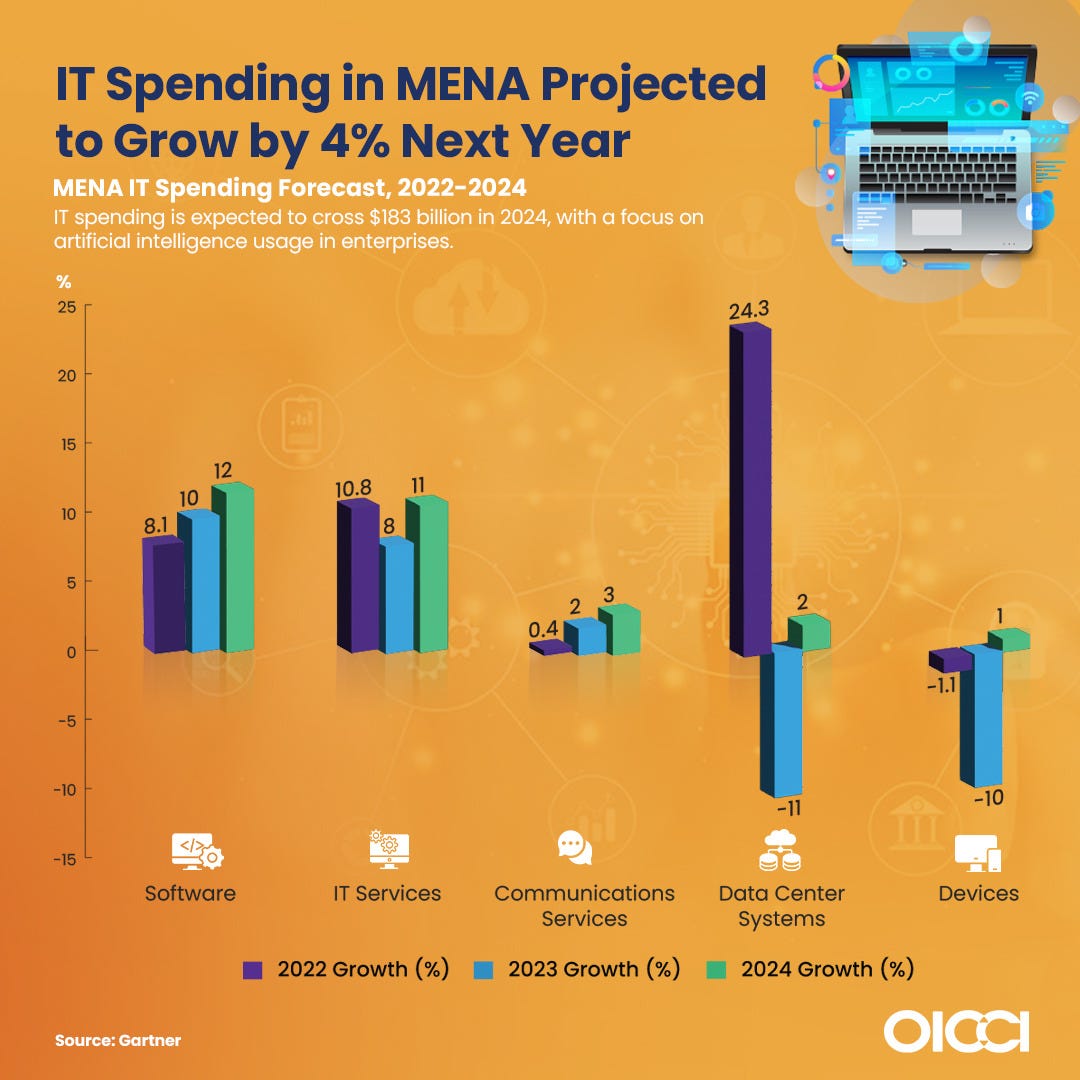Pakistan's Productivity Slump
A worker in Pakistan only produces 40% more value today than 30 years ago.

Over the last two decades, Pakistan has experienced a predominantly downward trend in both GDP and productivity. Various researchers have estimated the TFP growth at 1.77 per annum however the growth has been in spurts and vulnerable to a myriad of factors. Since the relationship between GDP and TFP is quite strong, it is important to consider productivity as a central control variable. Data shows a particular slump in the 1990s, a period marked by liberalization attempts and high debts. To ensure effective policies during the current trade challenges faced by Pakistan, it is imperative to assess the extent to which trade liberalization has impacted the country's economic performance.
During the 1950s to 1980s trade liberalization became a trend among developing countries although import substitution regimes have been unsuccessful throughout. In the early 1990s Pakistan also took part in the globalization efforts after decades of protectionist policies that were aimed at achieving self-sufficiency. As part of the liberalization efforts, industrial policies were introduced, under the Structural Adjustment and Stabilization Programmes. More efforts on the tariff front resulted in a reduction of the average tariff rate to 14% in 2008 as compared to 66% in 1990. But how did all this impact local industries? For one import of capital for industries became easy which in turn improved manufactured goods and exports.
However, Pakistan continues to exhibit a dismal performance in exports, largely attributed to its persistent import substitution policies. Additionally, the adverse impact of effective rates of protection on total factor productivity is evident, indicating that safeguarding local industries further diminishes sector productivity. Despite this, capital goods remain Pakistan's sole avenue for technological advancements. Consequently, there is a pressing need to enhance regulation and tariff applications to maximize the positive impacts of trade. It is crucial to recognize that implementing temporary trade efforts, such as banning imports of luxury items, is only a short-term solution. Instead Pakistan needs consistent stable trade policies with defined objectives.
GRAPHIC
The initial depiction illustrates Israel's indiscriminate devastation of Gaza and its perpetration of genocide against the Palestinian population. The subsequent visual incorporates the daily toll of casualties resulting from Israel's assaults on Gaza, spanning from October 7, 2023. Witnessing the ongoing escalation in Israel’s genocidal destruction and the count of Palestinians who have lost their lives, been left orphaned, injured, or displaced, deeply saddens us.
In our ongoing efforts to shed light on the heinous acts perpetrated by Israel in Gaza, it is imperative that we sustain international pressure to halt the genocide. We advocate for a permanent ceasefire, especially during the global New Year’s Eve celebrations.
#countdown2ceasefire
Make timely decisions to grow 🌱financially💰. The earlier you invest the better it is. Open your account and invest in NBP Islamic Mahana Amdani Fund to earn competitive returns.
NBP Funds Sign Up👇
https://bit.ly/NBPFunds
Team @brandnib has prepared a short explainer about the benefits of saving money via NBP Islamic Mahana Amdani Fund.
Kudos to the amazing team at @kickstartcoworking for securing an investment of PKR 200 million from Vital Group to double its co-working footprint in Karachi by acting as a property manager for landlords on a revenue-sharing basis.
Despite Pakistan's IT sector revenue reaching $3.9 billion in FY21, only 1.5% of the total GDP, there's room for expansion. With an ambitious goal of $18.4 billion by 2027/8, Pakistan must tap into global markets, presenting both a big opportunity and a challenge for its IT industry.
Data Visualization & Marketing Partner: Brand Nib
Visit: https://macropakistani.com/advertise/
Grateful for the ever-growing list of collaborators!
About Us: Macro Pakistani is a data-driven research platform that aims to provide a basic understanding of Pakistan’s economy. If you have an interest in contemporary news but are currently overburdened with sensationalism and specialized vocabulary, we are the platform for you.
How are we doing? Please send us any questions, comments or suggestions by replying to this email.
